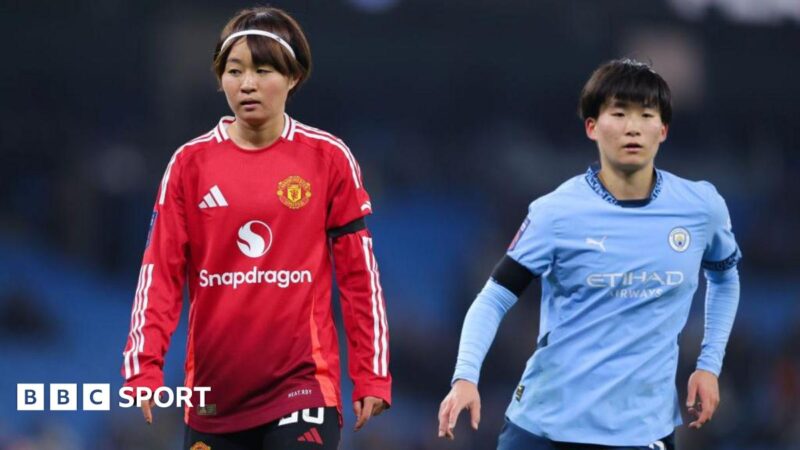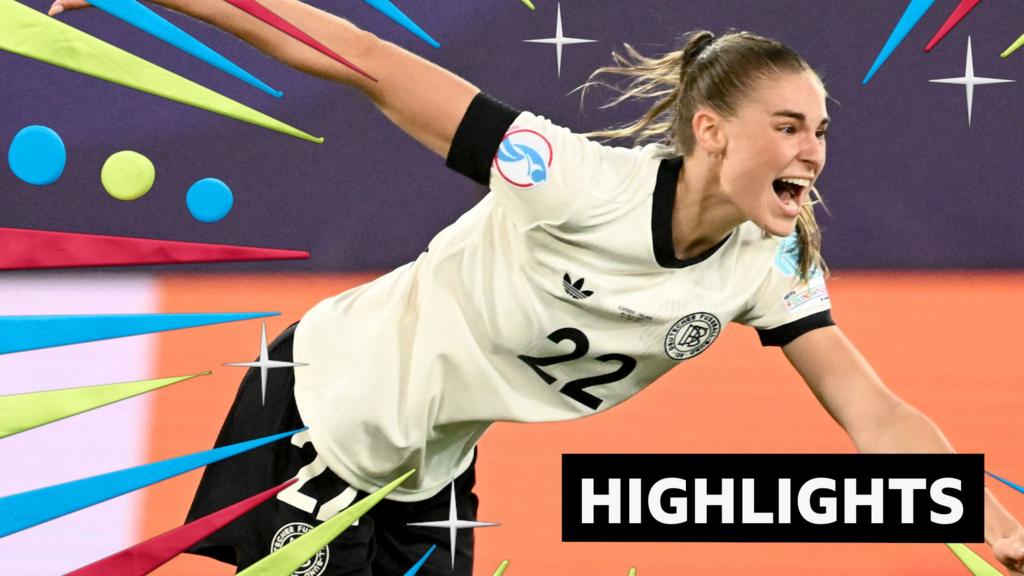A large part of Blayney’s role is to travel to England and spend weeks at a time analysing the performances of Japan’s players.3
She also provides player care – helping them manage language barriers, settle into new cities and link them up with other Japanese players in the league.
In the week she spoke to BBC Sport, she had attended games at Brighton, Manchester United and Liverpool.
She saw Risa Shimizu score for Liverpool in their Women’s League Cup win over Sunderland and Miyazawa dominate in United’s 3-0 win over Brann in Europe.
“Since January, I have been immersed in England quite frequently. I’ve been collaborating with coaches directly and that’s been excellent for Japan,” Blayney said.
“They live on the other side of the world, away from home and their families. Sometimes just having a familiar face is important.
“I was a former player who lived abroad so I understand the challenges. I always let the players know I’m coming to their games, but not Aoba Fujino because her face when she sees me always makes me smile.”
With so many Japanese stars in the WSL, clubs are introducing ways to help them settle, providing translation services and offering English speaking lessons.
Manchester City cook Asian-themed meals before matchdays and allow their Japanese players to return later in the winter break so they can celebrate new year with families back home.
As a result, the WSL is an attractive destination for Japan’s top stars and their emerging generation, and Blayney hopes more will make the move in the future.
“It is terrific for the younger players in Japan to see there is a pathway to the top leagues,” said Blayney.
“If I use Hikaru Kitagawa as an example from Everton, all the girls in England came around her and helped support her with the transition.
“It’s great to have that safety net. The current WSL players from Japan are setting a standard and it’s a really positive one.”








